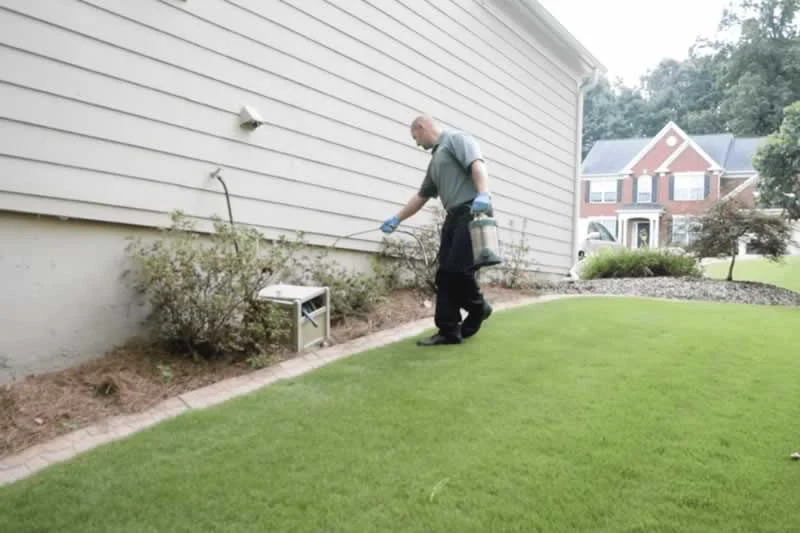
pest-intrusion-prevention – Effective Landscaping Strategies to Keep Pests at Bay
best-plants-to-reduce-pests – Choosing Plants That Naturally Repel Pests
landscape-maintenance-for-pest-control – How to Keep Your Landscape in Check to Prevent Pests
pest-proofing-tips-for-gardens – Simple Tips for Pest-Proofing Your Garden Through Landscaping
landscaping-tools-and-services – Essential Tools and Services to Help with Pest Prevention
Effective Landscaping Strategies to Keep Pests at Bay
If you're trying to prevent pests from intruding into your home or garden, landscaping plays a pivotal role. With a few strategic changes, you can significantly reduce the risk of pest invasions without resorting to harmful chemicals.
One of the most important steps in preventing pests is to design your landscaping with natural barriers and deterrents. For example, placing gravel or mulch around the base of plants can help deter ants, while choosing plants with pest-repellent properties can naturally prevent a variety of insects.
Take the case of Sarah, a homeowner in Florida, who was tired of dealing with ants and termites invading her garden. By creating a barrier of mint, lavender, and rosemary plants, all of which are known for their insect-repelling qualities, she noticed a drastic reduction in pests within weeks. These simple, natural changes not only kept pests away but also enhanced the overall beauty of her garden.
In addition, using hardscapes like rocks and stones around the perimeter of your garden can help discourage rodents and insects from entering the area. Remember, maintaining proper drainage and clearing away standing water also plays a crucial role in keeping mosquitoes at bay.
Choosing Plants That Naturally Repel Pests
Not all plants are created equal when it comes to pest control. Some plants have natural properties that repel insects and other pests, making them a great addition to your landscaping if you're looking to prevent unwanted visitors.
1. Lavender:
Lavender is a well-known pest repellent. Its fragrant aroma is disliked by mosquitoes, flies, and even moths. It’s perfect for placing near doorways or in gardens where you spend a lot of time.
2. Marigolds:
Marigolds contain pyrethrum, a compound found in many commercial insect repellents. These vibrant flowers can deter aphids, mosquitoes, and even rabbits from entering your garden.
3. Mint:
Mint is another excellent option for keeping pests away. It’s particularly effective against ants, fleas, and spiders. Just be cautious with mint—it can spread rapidly, so it's best to grow it in containers to prevent it from taking over your garden.
4. Chrysanthemums:
Chrysanthemums not only add beauty to your garden but also help protect your plants from aphids, mites, and roaches. These flowers contain pyrethrins, natural insecticides that repel pests.
By choosing plants with these natural pest-repelling properties, you can minimize the need for harsh chemicals and create a garden that’s both beautiful and pest-free.

Servpro of Boone and Clinton Counties
FrankfortClinton CountyIndiana
1980 West IN-28, Frankfort, IN 46041, USA
How to Keep Your Landscape in Check to Prevent Pests
Once you've established a pest-resistant landscape, the next step is maintaining it to ensure that it remains effective. Regular upkeep is essential to avoid creating an environment where pests can thrive.
1. Regular Pruning and Cleaning:
Overgrown bushes, trees, and plants create a perfect hiding spot for pests. Regular pruning and cleaning of your landscape help remove any dead leaves, branches, or plant debris that could harbor insects or rodents.
2. Proper Watering Practices:
Standing water can quickly attract mosquitoes and other pests. Ensure that your garden's irrigation system is working properly, and consider using drip irrigation to avoid water pooling around your plants.
3. Mulching:
While mulch helps retain moisture and regulate temperature, it can also attract pests if not maintained. Use mulch in moderation, and be sure to turn it over regularly to prevent it from becoming a breeding ground for termites and other pests.
For example, a homeowner in California used to experience frequent pest issues after planting a new flower bed. By pruning the shrubs and ensuring proper drainage, she saw a sharp decline in pest activity over the course of just one season.
These simple maintenance tasks are crucial in preventing pests from infiltrating your landscape and home.
Simple Tips for Pest-Proofing Your Garden Through Landscaping
Aside from the obvious benefits of keeping your landscape beautiful, well-maintained gardens can actively prevent pests from entering your home. Below are some practical tips for pest-proofing your garden through landscaping.
1. Create Physical Barriers:
Fencing, netting, and mesh can help keep larger pests such as rodents and deer away from your garden. Additionally, strategically placed rocks or shrubs around the edges of your garden can act as physical barriers against insects and pests.
2. Use Natural Deterrents:
Planting herbs like basil, garlic, and rosemary can repel common pests such as mosquitoes and flies. Also, certain essential oils, such as citronella, can be used as natural sprays or placed in small containers throughout your garden.
3. Incorporate Companion Planting:
Certain plants can be used to protect others from pests. For example, planting basil near tomatoes can help protect them from hornworms, while planting garlic near roses can deter aphids.
For Jane, a garden enthusiast in Oregon, companion planting has been a game changer. After planting garlic around her rose bushes, she noticed fewer aphids on her flowers and a significant reduction in pest activity overall.
Essential Tools and Services to Help with Pest Prevention
Sometimes, despite your best efforts, pests still manage to find their way into your garden or home. In these cases, utilizing the right tools and services can make a huge difference.
1. Pest Control Products:
Using natural pest control products such as insecticidal soap, neem oil, and diatomaceous earth can help manage pests without resorting to harsh chemicals.
2. Landscaping Services:
Professional landscapers can help identify potential pest hotspots in your yard and implement preventative measures. They can also assist with seasonal cleanups and maintenance to ensure your landscape stays pest-resistant year-round.
3. Pest Control Experts:
If you're struggling with persistent pests, it might be time to consult a pest control expert. Services like PestControlHub offer specialized pest management plans tailored to your landscape’s needs, ensuring that your property remains pest-free.
By investing in the right products and services, you can create a pest-proof environment that’s both functional and attractive.

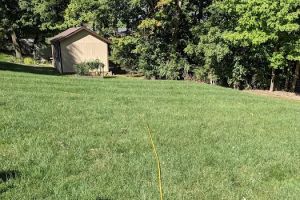


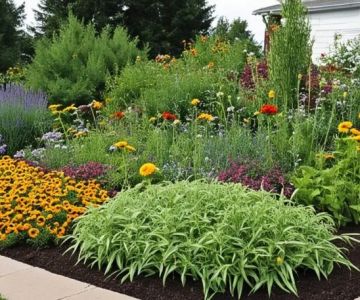
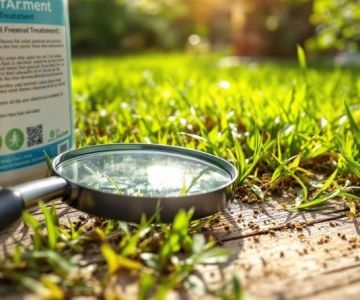
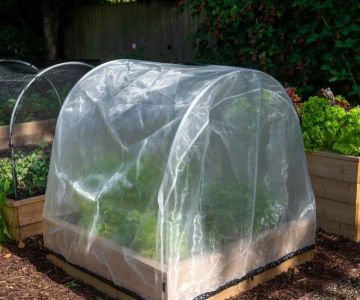

 Terminix4.0 (2023 reviews)
Terminix4.0 (2023 reviews) Mosquito Joe of North Shore Long Island NY4.0 (759 reviews)
Mosquito Joe of North Shore Long Island NY4.0 (759 reviews) Hasgoe4.0 (135 reviews)
Hasgoe4.0 (135 reviews) Absolute Termite & Pest Control4.0 (43 reviews)
Absolute Termite & Pest Control4.0 (43 reviews) Capitol Mosquito Of Calvert County5.0 (1 reviews)
Capitol Mosquito Of Calvert County5.0 (1 reviews) Green Pest Services4.0 (2126 reviews)
Green Pest Services4.0 (2126 reviews) How to Use Preventative Barriers in Crawlspaces – Expert Home Protection Guide
How to Use Preventative Barriers in Crawlspaces – Expert Home Protection Guide How to Monitor Pest Pressure in Foundation Footprint: A Complete Guide
How to Monitor Pest Pressure in Foundation Footprint: A Complete Guide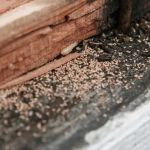 How to Monitor Pest Conditions in Walls
How to Monitor Pest Conditions in Walls How to Read a Pest Control Contract: Don’t Get Trapped
How to Read a Pest Control Contract: Don’t Get Trapped Natural Pest Control Methods That Are Safe for Kids and Pets
Natural Pest Control Methods That Are Safe for Kids and Pets How to Control Pests in Crawl Space Vents
How to Control Pests in Crawl Space Vents